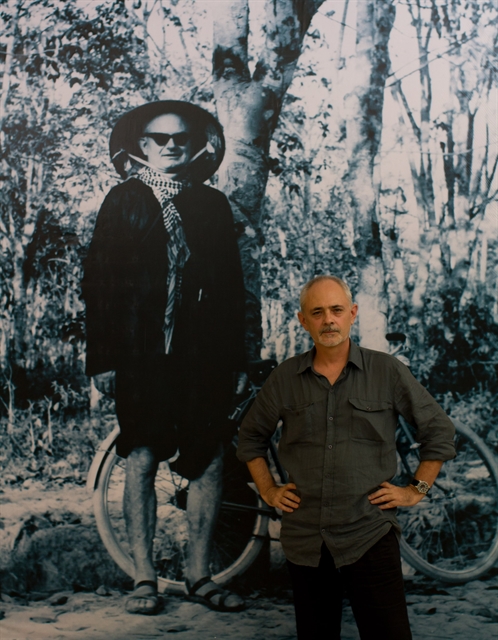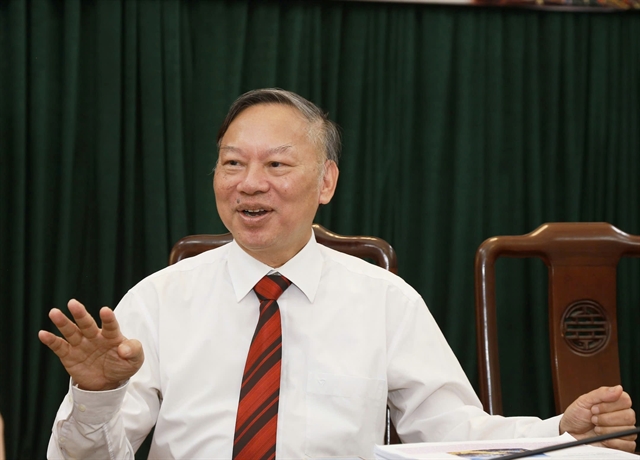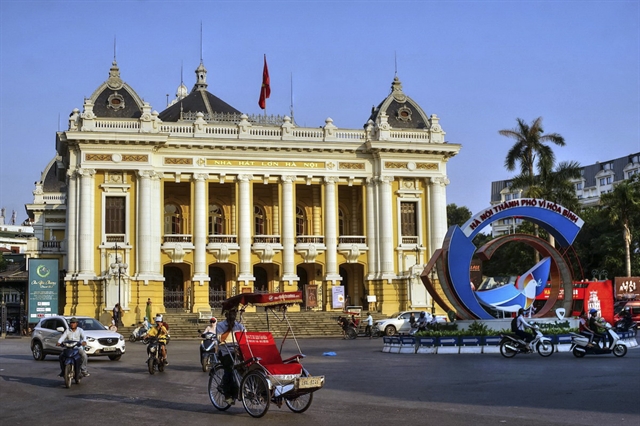 Life & Style
Life & Style

Việt Nam News reporter Lê Hương speaks with Nguyễn Quang Ngọc, vice president of the Việt Nam Association of Historical Sciences, about the significance of October 10, 1954, the day the Vietnamese resistance army took over Hà Nội, and the French influences in Việt Nam.
 |
| Nguyễn Quang Ngọc, vice president of the Việt Nam Association of Historical Sciences. VNS Photo Minh Đức |
Could you explain the historical context of Capital Liberation Day, October 10, 1954?
On May 7, 1954, the historic Điện Biên Phủ battle marked the victory of Việt Nam’s war of resistance against French occupation forces. This victory significantly changed the political landscape, allowing us to negotiate at the Geneva Conference under better conditions. On July 21, 1954, the Geneva Agreements were signed, marking an important step in the restoration of peace in Indochina.
Under the agreements, France, along with other involved parties, recognised the independence of Việt Nam, Laos and Cambodia. Importantly, it acknowledged Việt Nam's sovereignty and territorial integrity. However, due to the balance of forces, the 17th Parallel was considered a temporary boundary, with French forces moving to the south. The northern region, including Hà Nội, was fully liberated.
For Việt Nam, the Hồ Chí Minh resistance government prioritised reclaiming the North, especially Hà Nội. The French military gradually withdrew, with the final French troops leaving the city via Long Biên Bridge on October 9, 1954. The capital was now free from foreign forces, paving the way for the takeover/liberation of the city the following day.
From September 18, 1954, President Hồ Chí Minh and the Pioneer Army Division 308 made their way to Phú Thọ, pausing at Hùng Temples. There, President Hồ addressed the troops, invoking the legacy of the Hùng Kings: "The Hùng Kings had the merit of building the nation, and we must work together to protect it."
He urged the soldiers to uphold discipline, ensure public order, safeguard property, and maintain security while respecting the livelihoods of both locals and foreigners. His instructions laid out the peaceful strategy for the capital’s takeover, emphasising the need for both military and cultural strength.
Thus, on October 10, 1954, the Pioneer Army entered Hà Nội in an atmosphere of peace, joy, and celebration.
What was the significance of President Hồ Chí Minh’s decision to send young intellectuals to the capital ahead of the takeover?
This was a highly strategic and forward-thinking move. The decision to send young intellectuals to the capital ensured a peaceful transition and maintained the city’s stability. If the capital had been liberated by force, there could have been more fighting, destruction, and a delayed process of peace-building.
President Hồ stressed the importance of stability as the foundation for future prosperity. This approach preserved Hà Nội's public works and set the basis for the city’s growth under socialist principles. It was a crucial step in building a peaceful and prosperous future for the capital.
How has Capital Liberation Day been significant in the nation’s history?
October 10, 1954, marks a major turning point in the history of Hà Nội and the nation as a whole. Hà Nội continues to commemorate this day as one of its most important anniversaries, even during celebrations like the 1,000th anniversary of Thăng Long-Hà Nội.
The significance of the day lies in the fact that it marked the end of colonial rule and the beginning of peace and reconstruction. We transitioned from a time of war to one of building an independent and socialist capital, a transformation that shaped the future of Hà Nội and the entire nation. This event is not just a milestone in Việt Nam’s fight against French colonialism but also a key moment in its thousand-year history.
How do you view the relationship between Việt Nam and France today?
Việt Nam and France have since 1954 developed a relationship built on mutual respect and cooperation. I recall French President Jacques Chirac’s visit to Việt Nam in 2004, where he remarked on the special nature of our relationship, describing it as one that comes “from the heart”. He emphasised that this relationship was stronger than ever, and I believe that sentiment still holds true today.
We must also remember the significant role France played in the 1973 Paris Agreement, which helped bring an end to the anti-American war in Việt Nam. The establishment of diplomatic relations between the two countries that same year laid the groundwork for a long-standing partnership.
Since then, France has been instrumental in Việt Nam’s post-war reconstruction, contributing to various fields such as culture, education and infrastructure.
 |
| Hà Nội Opera House, a typical example of French architecture in the city. VNS Photo Mình Đức |
What are the lasting French influences in Hà Nội today?
French culture has left a lasting impact on Việt Nam, especially in Hà Nội. The most visible example is in the city’s architecture. French colonial-era buildings, which helped transform Hà Nội into a modern urban centre, remain integral to its cultural identity. Many experts agree that the city’s character cannot be understood without acknowledging its French architectural heritage.
Beyond architecture, French influence extends to education and intellectual development. Many Vietnamese intellectuals and leaders were educated under the French education system. This foundation has had a profound impact on the development of Việt Nam’s education system and the intellectual culture of the country.
In addition, cooperation between France and Việt Nam has been particularly strong in areas such as science, economics, and education, especially since the Đổi Mới (Renewal) period. France’s contributions have played a significant role in accelerating Việt Nam’s reform process, further solidifying the bond between the two countries. VNS




